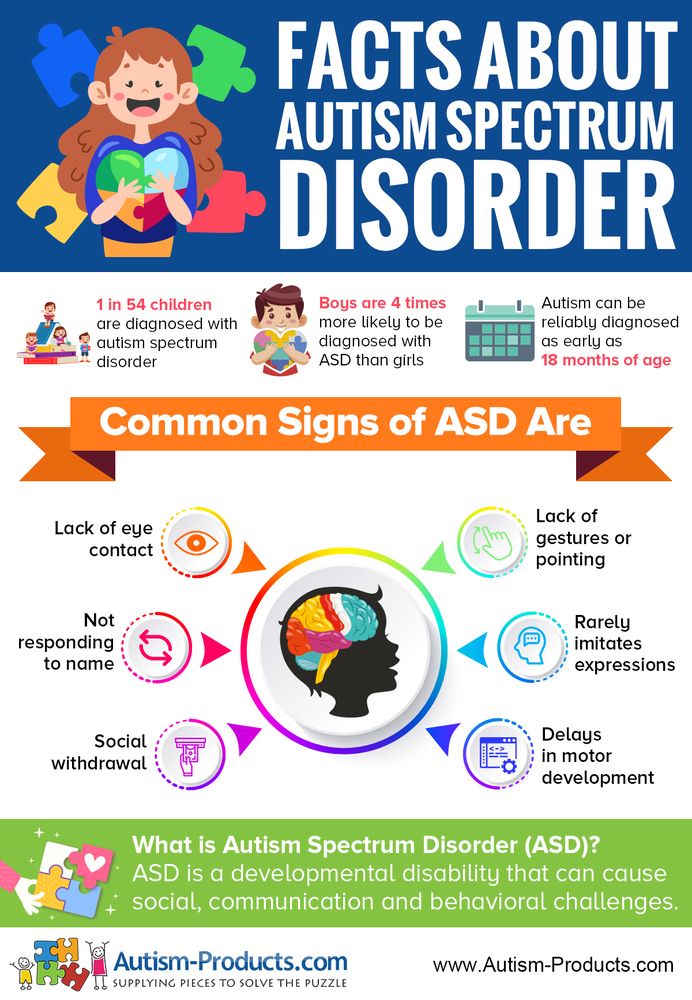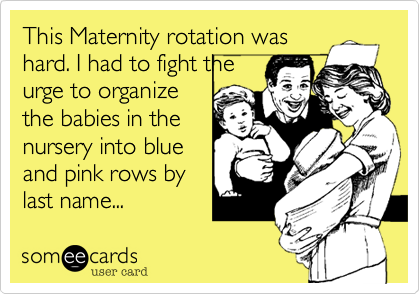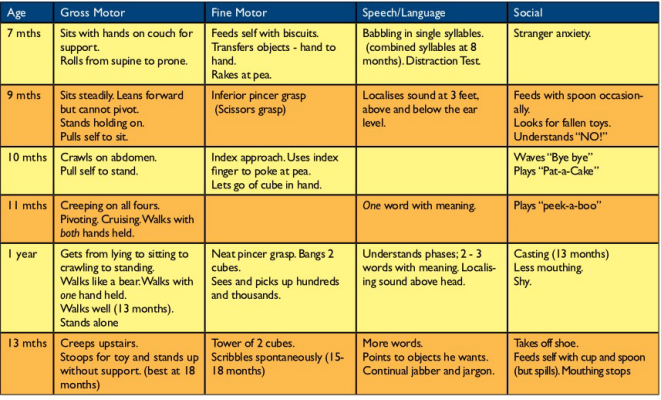3 week old sleeping all day
What is normal and what to do
Most newborns spend more time asleep than they do awake, but their sleep may happen in small chunks or on an irregular schedule.
Managing a newborn’s sleep is one of the most challenging tasks associated with looking after a newborn.
Newly born babies are not accustomed to schedules or the rhythms of a typical day and night. For this reason, they might not sleep at what many people consider to be the appropriate times.
Some people may worry that their baby is sleeping too little or too much. Anyone who is concerned about a baby’s sleep habits could try keeping a sleep log. They might find that the newborn is sleeping much less, or much more, than they thought.
This article discusses how much and how often a newborn baby should sleep.
Most newborns sleep for around 8–9 hours during the day and 8 hours at night. Most also wake up at least every 3 hours to feed.
However, this timing varies widely. Some newborns may only sleep for 11 hours per day, while others may sleep for up to 19 hours per day. Also, newborns may sleep more or less than usual when they are sick or when they experience a disruption to their regular routine.
Most newborns also do not sleep in one stretch. They usually sleep for only about 1–2 hours at a time, though some may sleep a little more or less than this. In the first couple of weeks, it is normal for a newborn to wake up to feed and then go right back to sleep.
As newborns grow into infants, they begin to develop a schedule. They eventually start sleeping longer at night, though they may still wake several times to feed.
By the age of 6 months, 90% of babies sleep through the night. Even then, though, there is a significant variation from baby to baby.
A baby occasionally sleeping for longer than usual is not a cause for concern unless there are other symptoms.
In general, it is uncommon for a newborn to consistently sleep through feedings or to sleep for longer than 19 hours per day unless they are ill or are having feeding difficulties.
Some of the most common reasons that healthy babies sleep for longer than usual include the following:
- They may experience a growth spurt or developmental leap.
- They may have a minor illness, such as a cold.
- They may have a serious infection. This is rare, but it can happen. A newborn might not have a fever or other symptoms of illness like an older baby might.
- In very rare instances, a baby may have another medical condition that causes them to sleep too much. Breathing and heart disorders may affect sleep, and premature babies often have different sleep patterns from full-term infants.
- Some babies sleep too much because they have jaundice. A newborn who has jaundice will have a yellow color to their skin and a yellow cast to the whites of their eyes. Other symptoms of more severe jaundice include being lethargic, having difficulty eating, and being fussy or irritable.
- Sometimes, babies may sleep too much because they are not getting enough to eat.
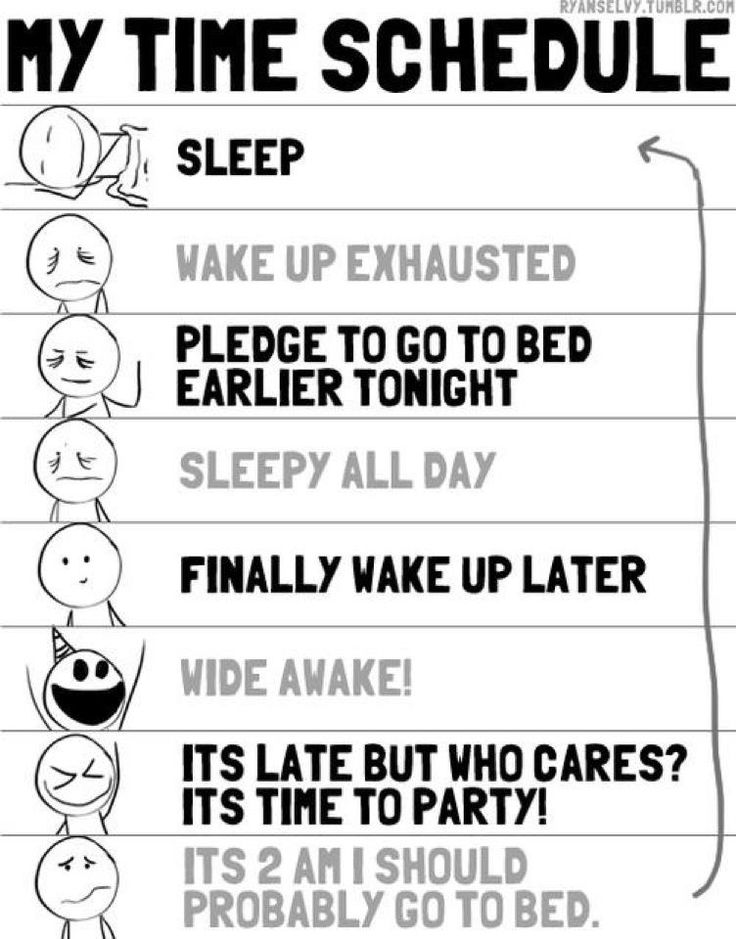 They may get dehydrated, lose too much weight, and even experience a failure to thrive.
They may get dehydrated, lose too much weight, and even experience a failure to thrive.
The latter could happen if there is a problem with nursing because a breastfeeding, or chestfeeding, person cannot measure how much their baby is eating compared with a person who is formula feeding. They rely on external signs, such as the baby’s weight gain and diaper output.
However, in the early stages — especially for first-time parents — the signs of a potential problem may be easy to miss.
The good news is that early intervention from a pediatrician and nursing consultant can ensure that a baby is getting enough food and reassure people that breastfeeding, or chestfeeding, is possible.
A baby, whether breastfed, chestfed, or formula fed, may not be getting enough to eat if the following apply:
- They seem very lethargic and unresponsive.
- They are 14 days old and have not retained their birth weight.
- They are more than 6 weeks old and are consistently gaining less than 4–6 ounces per week.

- They are producing fewer than four very wet diapers per day.
- They do not seem calmer after eating.
Newborns often cluster-feed, which means that they may eat several times over the course of 1–2 hours or nurse for an extended period. Most newborns should eat every 2–3 hours (or eight to 12 times every 24 hours) or more if a pediatrician recommends so or if the baby is not gaining enough weight.
Feeding a newborn whenever they show hunger cues — such as rooting, sucking, or sticking out their tongue — is the best way to ensure that they get enough food.
It is not necessary to wake most older newborns up to eat. However, those younger than 1 month old or so may not wake up when they feel hungry. Babies younger than 4 weeks old should not go longer than 4–5 hours without food.
To wake a baby up to eat, try brushing the side of their cheek. This can trigger the rooting reflex. Most babies dislike having their feet stroked. So, if stroking the cheek does not work, try gently wiggling the baby’s toes or gently stroking the bottoms of their feet.
Food needs vary from baby to baby. Parents and caregivers should consult a pediatrician or nursing expert, who can offer individual advice based on the needs and development of the baby.
Usually, a newborn who appears to be sleeping too much is just sleeping on an irregular schedule.
Nevertheless, health issues such as respiratory infections that are minor annoyances in older babies can be much more dangerous in newborns. So, anyone who is concerned about a baby’s sleeping schedule should consult a pediatrician.
Some strategies to try before calling the doctor include:
- feeding the baby every time they show hunger cues
- offering the baby the breast, the chest, or a bottle every 1–2 hours to ensure adequate food intake
- making sure that the baby is not too cold or too hot
- keeping a log of the baby’s sleep schedule for 1–2 days
When in doubt, contact a doctor. Only a doctor can accurately determine the reason that a newborn is sleeping too much. In many cases, a pediatrician may be able to assess the problem over the phone.
In many cases, a pediatrician may be able to assess the problem over the phone.
Excess sleep in a newborn is not typically an emergency unless they also show signs of respiratory problems. Call a doctor or go to the emergency room if the following apply:
- The baby is gasping for air or wheezing.
- The baby’s breathing is very loud.
- The baby’s nostrils flare when they breathe.
- The skin around the baby’s ribs sinks in when they breathe.
- The baby has a fever.
- The baby may have inhaled, touched, or eaten something toxic.
Finding the rhythm of a newborn’s sleeping pattern is a constant challenge. Most babies settle into a comfortable routine sooner or later. Parents and caregivers should eventually understand what is and is not normal for their baby.
It is common to worry about a baby’s sleep. This concern often helps people detect problems early and encourages them to seek expert advice when necessary.
Anyone who is worried that a baby may be sleeping too much should talk with a pediatrician.
Should I Let My Newborn Sleep All Day? Will They Be Up All Night?
by Rachel NormanWhat's in this post...
If you’ve been wondering if you should let your newborn sleep all day, let’s break it down here for the why’s and why nots.
Go with the flow. Let baby lead. Enjoy this time. Nap when baby naps. Babies don’t keep.
These are things you hear and feel make sense… except when rubber meets the road with your newborn it can be hard to figure out what to do. So let’s get to it…
Should I let my newborn sleep all day?
No. No, you definitely should not. Babies will have strong sleep needs and strong drive to sleep in those early days. Sometimes they’ll try and nap for 4 to 5 hours even. During the middle of the day!
As a certified sleep consultant and mother of 5, take it from me… if they sleep long stretches during they day they will not sleep long stretches at night.
Longer sleep stretches should be at night, not the day
See my newborn sleep schedule here for sample daily routines for your newborn but to quickly get to the point: we want baby to sleep their longest stretches at night.
If they’re taking super long daytime naps and awake half the night, they’re experiencing day night confusion. And the more you let them take their “night sleep” during the day, the longer this confusion will exist.
Well actually they aren’t confused, they are simply sleeping and eating in reverse to the adult world. Which will be a problem since you are an adult and plan on sleeping your longest stretches at night.
Read: How to Stop Contact Naps (Peacefully)- and What to Do Instead
How long should newborns nap for?
Because newborns have tiny tummies and need to feed frequently (full feeds, however, full feeds, mama) they will feed every 2 to 3 hours around the clock for a while. So if your baby is wanting to nap for 4 or 5 hours, they’re essentially taking that longest gap during the day.
So if your baby is wanting to nap for 4 or 5 hours, they’re essentially taking that longest gap during the day.
Instead, you want to make sure you are feeding your baby every 2 to 3 hours during the DAY, and then allowing them to sleep however long they want at NIGHT.
If a newborn has gone longer than 3 hours since the last feed, wake them up and feed them.
Read: Cocooning a Newborn & 7 Reasons Why it Can Be Good For The Family
Newborn Settling Guide
Tried-and-true *hands on* newborn settling strategies that even the most fussy (or wide-awake-sleep-refusing) newborns cannot resist!
Learn More
Read: The Nap Trap – How To Deal With It & Not Resist It
How sleepy is too sleepy for a newborn?
If baby will not wake up for feeds throughout the day or night and is extremely lethargic, of course contact your pediatrician.
If your baby is simply wanting to rest and nap during the day and still be out like a light at night… this is totally normal. If you’re nursing then baby is getting all those sleepy happy hormones from you.
If you’re nursing then baby is getting all those sleepy happy hormones from you.
Babies will wake up hungry, feed for a while, then try and fall asleep before the feed is over. Some babies, many actually, will still nap for 2 hours after that and only wake up to get more milk. And then they’ll repeat it all over again .
Only to wake up for slightly more time around the witching hours… and then go right back to bed at night. If baby is having enough wet diapers, dirty diapers, and is otherwise healthy, then consider yourself a lucky, mama.
Get all the info you need for your newborn on my wildly popular (and highly bookmarked) post: ultimate newborn sleep schedule: week by week
Newborn Sample Routine
Grab this sample newborn routine, tweak it, and have calmer more peaceful and predictable newborn days.
Read These While You’re At It
Filed Under: Basic Sleep Tips, Sleep
Tagged With: Baby, New Mom, Newborn, Sleep Basics, Sleep Schedules
Got A Spoiled Child? What To Do & Maybe What Not To Do?
Should I Wake Baby Up To Change Their Diaper?
Nap Times Cheat Sheet
Learn how to space naps, how many a day per age, best times, etc. and get your nap game ON!
and get your nap game ON!
Reader Interactions
Article | How much sleep do healthy babies get?
Popular wisdom says: "In any incomprehensible situation, go to bed" and "Morning is wiser than evening." These proverbs were born only when observing babies. Indeed, sleep solves many problems for them. He slept a little longer - and everything is fine with him, he got stronger, grew up and wakes up in a good mood. Why is that?
Why sleep is so important
Sleep is not just a time of rest when nothing happens to us. This is a whole complex of mechanisms invisible to the eye, the work of which goes according to a certain scenario. Sleep should be treated with respect and attention. Sleep time should never be sacrificed. Sleep deficiency in an adult causes a 45% decline in working capacity, and chronic sleep deprivation can lead to depression, overeating, behavioral changes, irritability, and reduced immunity.
If you don't get enough sleep, your mood will be bad and your child will have to deal with a lethargic and irritable mother. Sleep deprivation is one of the main problems of young parents. A newborn does not always sleep "baby sleep" all night, which means that they themselves cannot sleep. On the one hand, all modern parents already know that in the first year of a child's life they will not sleep much. On the other hand, there are things you can do for your own health and for the health of your baby. Namely, try to improve his sleep, especially at night. How to do it?
Sleep deprivation is one of the main problems of young parents. A newborn does not always sleep "baby sleep" all night, which means that they themselves cannot sleep. On the one hand, all modern parents already know that in the first year of a child's life they will not sleep much. On the other hand, there are things you can do for your own health and for the health of your baby. Namely, try to improve his sleep, especially at night. How to do it?
Hours of sleep and wakefulness
It is not in vain that the baby spends almost all his time in sleep. It is at this moment that it grows and develops: in the first 2 hours after falling asleep, growth hormone is actively produced. Quality sleep protects the psyche from overwork, strengthens the immune system. It is known that children with improved sleep get sick 30% less. Children's sleep is so important that it will easily overtake all other worries and affairs in the list of priorities. Elena Muradova, a certified consultant on children's and family sleep, suggests such a distribution of the phases of wakefulness and sleep by months.
The table is based on observations of the sleep of healthy infants. It's an average, but it's easy to get an idea of how kids sleep most of the time. Of course, these are not strict norms, but a guideline for parents.
Rhythm of life
Despite the fact that opinions about feeding and sleeping strictly by the clock have long and irrevocably been divided, and habits and way of life in each family are individual, the regimen is still useful to everyone. Both children and parents. The regime is not like a rigid schedule, but like a logical alternation of different phases. It is noticed that the child prefers the predictability of repeating cycles. Thus, biorhythms are easier to establish, which will ensure a healthy rhythm of life, comfortable for both the child and all family members.
If you want to fine-tune the daily routine, the best way to do this is to observe and perhaps record how the child behaves during the day. And here there is one secret - to catch the moment, which experts call "window to sleep". During this period of time, the baby is just starting to get tired, but is still in a good mood. As soon as you see that the child's natural activity is waning, you urgently need to leave everything and try to put the baby to sleep.
During this period of time, the baby is just starting to get tired, but is still in a good mood. As soon as you see that the child's natural activity is waning, you urgently need to leave everything and try to put the baby to sleep.
Signs of fatigue
- Baby rubs eyes;
- yawns;
- naughty;
- his mood deteriorates;
- loses interest in the environment;
- turns away;
- becomes less mobile;
- pulls the ear.
If you do not catch these signs and skip the first stage of drowsiness, then overexcitation may occur, the baby will begin to act up, cry, not breastfeed, refuse to fall asleep. At the moment of danger, an ancient mechanism is activated that prevents sleep: the adrenal glands release hormones into the blood, and at this moment a "second wind" opens. In this state, it is very difficult to put the baby to sleep! Of course, fatigue will take its toll, and the baby will fall asleep, but perhaps already with hysteria and tears. So it is important to catch the moment before the “window to sleep” closes.
So it is important to catch the moment before the “window to sleep” closes.
A helpful ritual
Children love it when things happen in sequence, and always in the same order. So they are calmer and they feel safe. This directly applies to the main infant activity - sleep. You need to develop a clear bedding ritual and always stick to it. Dim the lights in the room where the baby will sleep, avoid harsh sounds. A good sleep is where it is quiet, dark, comfortable temperature, and the air is fresh.
By the age of 3 months, you can develop a sleep-wake cycle that is comfortable for you and your baby. With age, the number of episodes of daytime sleep decreases and the main sleep occurs at night. Usually it is 5 hours without waking up for night feedings.
Parent traps
Should a child be rocked? Is it possible to teach a child to fall asleep on his own? How long should the laying ritual last? There are no "correct" answers to such questions. Everyone needs a bedtime ritual, but what exactly it will be depends only on you. What you accustom yourself and your child to will happen day after day.
What you accustom yourself and your child to will happen day after day.
When your baby is 6-8 weeks old, start giving him a chance to fall asleep on his own. How? Put him to bed when he's sleepy but still awake, experts advise.
The bedtime ritual marks the beginning of sleep, introduces the baby into it, relaxes, fills it with love. Sleep experts advise against rocking or feeding your baby before bed. Parents think that if they start training the child too early, it will not work. But this is not so. Babies develop sleep habits. If you rock your baby before bed every night for the first 8 weeks, why should he expect anything else later?
It is important that the child falls asleep where he will sleep. His consciousness remembers the circumstances of falling asleep, and if he suddenly wakes up by accident, he will not understand where he found himself. Anxiety will awaken him completely, and you will have to start all over again. Such associations associated with sleep begin to form in a child from 4 months.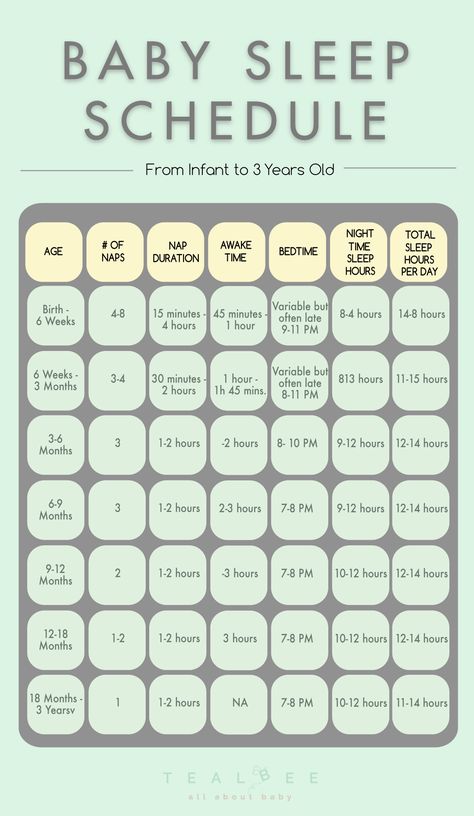
There is another mistake that inexperienced parents make: they think that if they put the child to bed later, he will not wake up too early in the morning. At first glance, this is a good idea - teenagers, for example, when they go to bed late, the next day they sleep until noon! Unfortunately, this does not work with young children. The biological clock is a powerful force that wakes young children up at the same time every morning, no matter what time they fall asleep in the evening. Parents who put their child to bed late will get a tired and lethargic baby with signs of apparent lack of sleep the next day. Do not neglect the regime! The child must sleep through the hours of the night assigned to him.
What determines a child's sleep
Once again, we emphasize that the norms of children's sleep are indicative and each child needs his own number of hours of sleep. What does it depend on?
Genetic features or hereditary predisposition. All people are divided into long-sleepers and short-sleepers. Those who get enough sleep for 8-10 hours of sleep are long-sleepers, while those who need 6-7 hours of sleep are short-sleepers. This feature is passed on to your baby. But not only genetics affects the need for sleep.
Those who get enough sleep for 8-10 hours of sleep are long-sleepers, while those who need 6-7 hours of sleep are short-sleepers. This feature is passed on to your baby. But not only genetics affects the need for sleep.
Activity while awake. When you work harder, you need more sleep to recover. If a child has received too many new experiences during the day, then he will sleep longer. If the child spent the day calmly, then, most likely, less sleep is needed.
State of health. When unwell, children sleep more and recover in sleep.
Sleep conditions. It has been proven that at a lower temperature, in darkness and with sufficient oxygen, sleep is better.
Sleep preparation can be stimulating or relaxing. Choose the right evening ritual.
IMPORTANT: Children under 5 years of age usually do better if they live on an early schedule, according to the body's biological clock.
And this means that the child should go to bed early and get up early. Then the children wake up fully asleep and in a good mood.
Then the children wake up fully asleep and in a good mood.
Wake up sleepyhead
Most often, parents sound the alarm when the baby does not sleep or sleeps poorly. But if the child sleeps a lot, parents are usually happy and rarely ask for help. But in vain: a baby under 1 month old who sleeps too long can suffer from dehydration and lose weight. If a baby older than 1 month sleeps more than usual, you need to observe him for a week and not rush to conclusions. If too much sleep is observed for 7 days or more, you should contact a neurologist to check the functioning of the nervous system.
If you can't manage your baby's sleep on your own, contact a sleep consultant. Children's sleep experts will analyze your regimen, sleep conditions and fall asleep and give all the necessary recommendations. The main criterion of the norm is always the good health of the baby, smiles and cheerfulness.
Sources:
Family Tree Parent Club
Project “Sleep, baby. Sleep Education
Sleep Education
Baby Sleep Center for Children's Sleep and Development
Online School of Motherhood and Childhood Happy Mom
Fees des bebes magazine
Baby sleeps all day - is it normal? | mamaclub
Healthy sleep is very important for children. Parents are happy when their baby has had enough sleep and is ready to enjoy and play. But it happens that the sleep of different children is not the same: some practically do not sleep, while others spend most of the day in bed. Then parents ask themselves: is it normal if the child sleeps all day?
The duration and frequency of children's sleep is individual for each child, sleep norms are only approximate in order to form a child's regimen. Therefore, if your baby sleeps more or less than others, this is not a cause for concern. A child's sleep is influenced by many factors, such as the physiological state, his temperament and regimen. If the child is alert and healthy, but at the same time sleeps more than recommended, then there is no reason to worry. However, you should be aware of the pattern: the smaller the child in age, the more he sleeps.
However, you should be aware of the pattern: the smaller the child in age, the more he sleeps.
Video of the day
If the baby is a newborn, then it is quite normal if he sleeps all day. 18 hours of sleep for him is the norm. He can wake up, eat and sleep again.
If the child is lethargic, eats poorly and sleeps all day, this is a bad sign. It is possible that he is ill and needs medical attention. Sleep during illness is very good, as they say, the best medicine, but still be very attentive to how your child feels.
Also, a child can sleep all day, if before that he had a day without sleep at all, in which case he needs to rest and gain energy, so this day is “dumping”. Get some sleep and everything will be back to normal.
It also happens that a child has confused day and night, then he will sleep all day and stay awake at night. This is not very good for the general condition of the child, and for you as well, since you need to sleep at night. Try to improve your sleep pattern.
Try to improve your sleep pattern.
Daytime naps may be longer if the weather changes outside. Then adults just walk around sleepy and dissatisfied, with a headache, and children in a similar way endure all the hardships of weather changes.
If your child sleeps all day, do not sound the alarm right away, watch him, measure his temperature. If everything is normal, and the next day the child eats, is awake, then everything is normal. If he sleeps all day again, then consult a doctor.
The materials on this site are recommended for general informational use and are not intended for diagnosis or self-treatment. MedOboz's medical experts ensure that all content we host is published and meets the highest medical standards. Our goal is to inform readers about the symptoms, causes and methods of diagnosing diseases as efficiently as possible. We urge you not to self-medicate, but to diagnose diseases and determine the methods of their treatment, we advise you to contact doctors.
